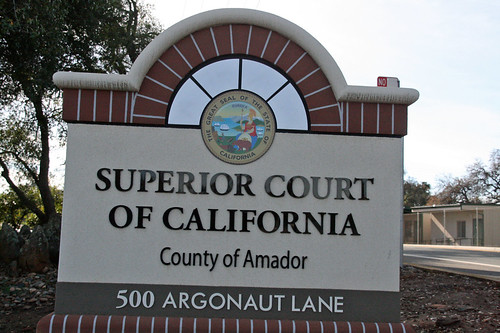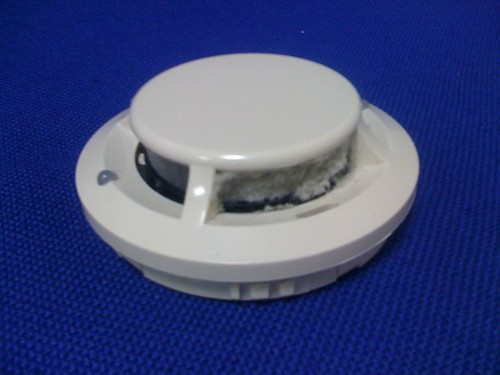Modified Seller Held Note Subject to Anti-Deficiency Statutes.
Appellant buyers purchased a multi-unit parcel from the seller for $1,265,000.00. The purchase price consisted of a cash down payment, a purchase money first trust deed financed by an independent lender, and a purchase money second trust deed in favor of the seller securing a promissory note for $245,000.00.
A few years later, the buyers sued the seller for non-disclosure of housing code violations in the original transaction. In settlement of that lawsuit, the parties agreed to reduce the amount of the seller’s note. The note was also modified to extend its term and reduce the monthly payments to interest only
Sometime thereafter, the buyers defaulted on both first and second promissory notes. The holder of the first trust deed foreclosed on the property, wiping out the second trust deed.
The seller, thereafter, filed a motion to enforce the settlement agreement as a separate judgment under the provisions of section 664.6 of the Code of Civil Procedure, claiming the full amount of the note plus interest and attorneys’ fees. The buyer opposed the motion on the grounds that the anti-deficiency statute (section 580b of the Code of Civil Procedure) precluded the seller from recovering a deficiency judgment and limited the seller’s recovery to the note’s security, which had been exhausted. The trial court entered judgment in favor of the seller for $215,615.00 for the principal amount, unpaid interest, and attorneys’ fees.
The Second District Court of Appeal reversed the judgment in Weinstein v. Rocha B235931, filed August 1, 2012. The DCA held that the settlement agreement, “… did not create a separately enforceable independent obligation…” for the buyer to pay the seller $200,000.00. The settlement agreement was tied to the promissory note as a modification of the terms of the note, which was a seller financed note secured by a deed of trust. As such, the seller’s sole remedy was limited to his note’s security, which was exhausted by the foreclosure of the first trust deed.
Thursday, September 6, 2012
Modified Seller 2nd Note Wiped Out
Thursday, August 23, 2012
Orange grove, Orange County, 1961
Was asked to resolve a dispute today in Orange County involving a consumer and a real estate agent, who is being rude, defensive and unprofessional. Jim Hildreth Mediator of Real Estate Mediation Services http://www.RealEstatemediation.org has a specialty involving & resolving real estate disputes in California.
Tuesday, August 21, 2012
Superior Court
Will meet with a Buyer over a California Estate Dispute involving non-disclosure issues.
Wednesday, July 18, 2012
Reminder Californians
Just a reminder, The bottom line is that ALL SINGLE FAMILY 1-4 dwelling California residential dwelling units as of July 1, 2011 must have a CO detector, even those that are not being sold. All other dewlling units (multi-family, dormatories, hotels, motels, etc) must have CO detectors installed by January 1, 2013.
Saturday, July 14, 2012
Columbia Stage Coach
In the past five years, I have done some interesting mediation's, from a stolen tractor, guns, a mummy cat, dog disputes and today I was asked to mediate a dispute involving a passenger on a stage coach.
I look forward in being the mediator.
Wednesday, July 4, 2012
Tuesday, July 3, 2012
Mediation ADR Advantages
ADVANTAGES OF ADR
ADR can have a number of advantages over a lawsuit.
•
ADR can save time. A dispute often can be resolved in a matter of months, even weeks, through ADR, while a lawsuit can take years.
•
ADR can save money. Court costs, attorney fees, and expert fees can be saved .
•
ADR can be cooperative. This means that the parties having a dispute may work together with the neutral to resolve the dispute and agree to a remedy that makes sense to them, rather than work against each other.
•
ADR can reduce stress. There are fewer, if any, court appearances. ADR can be speedier, and save money and because the parties are normally cooperative, ADR is easier on the nerves . The parties don't have a lawsuit hanging over their heads for years.
•
ADR encourages participation. The parties may have more chances to tell their side of the story than in court and may have more control over the outcome.
•
ADR is flexible . The parties can choose the ADR process that is best for them. For example, in mediation the parties may decide how to resolve their dispute.
•
ADR can be more satisfying. For all the above reasons, many people have reported a high degree of satisfaction with ADR.
Superior Court,









